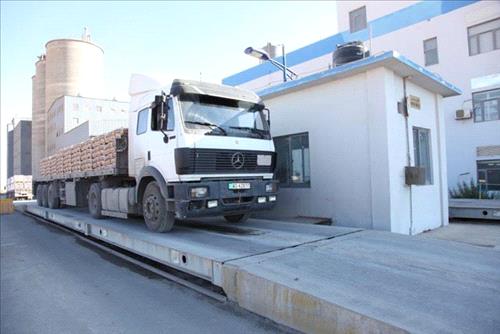Ammon News - by Samir Ghawi
AMMAN (The Jordan TImes) — The cement industry in Jordan is suffering, the general manager of the Northern Cement Company told The Jordan Times on Saturday.
According to Basem Zabian, there is a gap of six-seven million tonnes between the annual production capacity, which is about 10.5 million tonnes, and consumption, which at present stands at around 3.7 million tonnes and is expected to rise to four million tonnes next year.
“Five companies are competing for a slice bigger than the 20 per cent share split among them in the local market,” said Zabian, noting that Al Manseer Group was the last competitor to enter the cement industry late last year.
With limited opportunities for export and tough competition abroad, it is important to cut cost, said Zabian, adding that managing to break even will be an achievement in itself for Jordanian cement firms.
Cement is being sold at JD68-70 per tonne, while the normal price should be between JD90 and JD92 per tonne.
The general manager said costs are basically incurred by paying for energy; fuel oil is the most expensive.
Even plants that use pet coke are finding it difficult these days, because imports from European countries through Lebanon are problematic.
Zabian said costs are lower in Iraq, Saudi Arabia and Egypt, especially for energy, which makes it hard for Jordanian companies to sell cement in these markets.
Selling in Syria is out of question at this stage because of the fighting there. Once the conflict ends, he estimated that the country needs more than 100 million tonnes of cement to rebuild.
Still, even when fighting ends in Syria, Jordanian cement firms cannot expect to get a bonanza because Turks will not give up easily on a market that can provide a lucrative business, said the general manager.
“Maybe Jordanians can acquire a portion of the business in the future by supplying cement to the southern region of Syria,” he said.
The general manager pointed to the West Bank as the only place where Jordanians are having a good opportunity. Northern Cement Company enjoys a 40 per cent share of the bulk cement in Palestinian market, he said.
Even sales in Amman are not what they use to be when mega-projects were under way, such as the boulevard, Zabian remarked.
“Nowadays, it is a few tonnes here and a few tonnes there for contractors who construct apartment buildings in the capital,” he said.
“A good opportunity on the horizon is Aqaba, where Saraya and Al Maaber are embarking on sizeable projects,” he added.
In such a challenging environment, he described Northern’s mid-year financial results, provided in a disclosure to the Amman Stock Exchange, as positive.
He expects competitors’ results to be lower, “if not in the red”.
According to the disclosure, Northern Cement generated JD1.5 million net profits during the first six months of this year, down from JD4.5 million during the same period of last year. Pre-tax profit amounted to JD1.6 million, compared to JD4.9 million.
Sales from January until end of June 2013 declined to JD24.9 million from JD31.9 million achieved during the first six months of last year. Taking into account production costs, gross profit came at JD2.7 million on June 30, 2013, down from JD5.7 million on June 30, 2012.
The company’s balance sheet showed JD69.7 million (JD70.7 million) in total assets of which JD28.6 million (28.3 million) were current assets that included JD8.1 million (JD3 million) of cash and equivalent cash, JD6.6 million (5.3 million) of cheques under collection, 3.8 million (unchanged) of receivables, JD8.5 million (JD9.7 milion) of inventory, and JD0.9 million (5.6 million) of goods in transit.
Fixed assets, mostly equipment, were worth JD41.1 million (JD42.4 million).
Current liabilities were higher at JD9.7 million at the end of last month from JD7.8 million on June 30, 2012.
Shareholders’ equity totalled JD60 million (JD62.8 million), including JD55 million of capital, JD3.6 million (JD3.4 million) of mandatory reserve, and JD1.4 million (JD4.4 million) of retained earnings.
